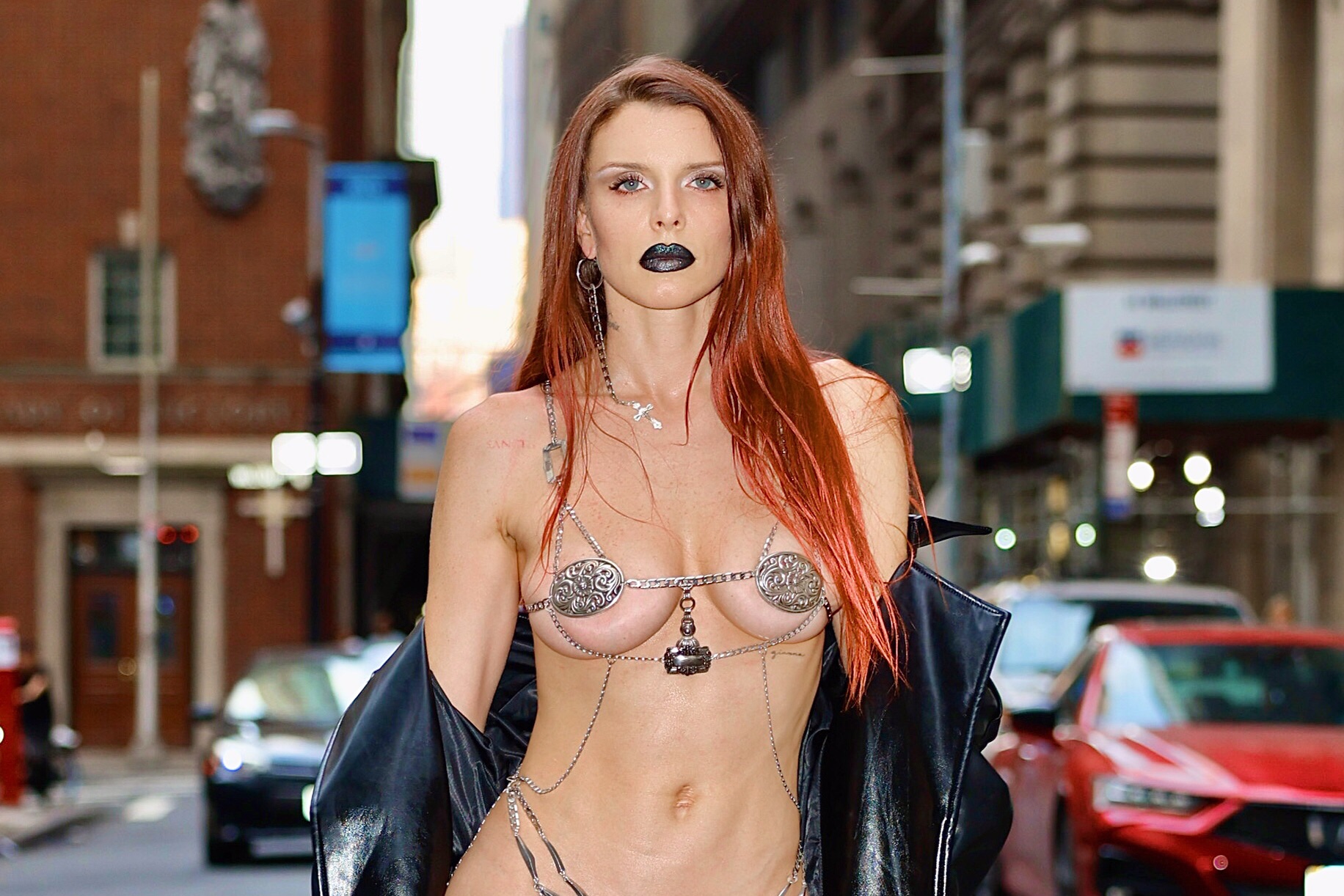FKA Twigs is at the center of a controversy after the UK Advertising Standards Authority’s (ASA) ban on her Calvin Klein ad campaign. The ban, based on claims that the images portrayed her as a “stereotypical sexual object,” has ignited a broader discussion on nudity, empowerment, and the existence of double standards within the fashion and advertising industries.
The ASA’s decision, outlined in a report by The Guardian, cites two complaints arguing that the Calvin Klein poster featuring Twigs in a denim shirt draped across her body, revealing part of one breast and the side of her buttocks, inappropriately sexualized her. The ruling further deemed the ad “irresponsible and likely to cause serious offense,” resulting in a directive for it not to appear again in its current form.

Twigs responded to the ban with a powerful Instagram post, sharing the photo accompanied by a defiant caption.
I do not see the ‘stereotypical sexual object’ that they have labeled me. I see a beautiful, strong woman of color whose incredible body has overcome more pain than you can imagine
FKA twigs
This statement not only challenges the ASA’s characterization but also serves as a celebration of Twigs’ strength and resilience.
The singer and dancer went on to address perceived double standards within the industry, comparing her banned campaign to others of a similar nature. Expressing pride in her physicality, Twigs connected her art to iconic figures like Josephine Baker, Eartha Kitt, and Grace Jones, who redefined standards of empowerment and sensuality. She thanked Calvin Klein and the photographers Mert and Marcus for providing her with a space to express herself authentically and emphatically stated,
I will not have my narrative changed.
FKA twigs
This Instagram post, which also serves as Twigs’ response to the ban, garnered support from fellow celebrities in the comment section. Maren Morris and Greg Williams were among those who showed solidarity, emphasizing the importance of artistic expression and the right to control one’s narrative.
The controversy surrounding FKA Twigs’ banned ad campaign prompts a broader conversation about artistic freedom, empowerment, and the representation of women in the media. The ASA’s decision raises questions about the fine line between empowerment and objectification in advertising, especially in an industry known for deliberately using sexuality in campaigns.

In contemplating nudity and its societal perceptions, there is a call for a fundamental shift in thinking. The human body, a marvel of nature, has been unjustly cloaked in layers of shame and taboo. A reflection on personal experiences and societal norms ingrained from childhood reveals that discomfort with nudity is more about cultural constructs than inherent immorality. Challenging these norms can dismantle harmful stereotypes and foster a healthier relationship with our bodies.
The gendered lens of nudity, particularly its impact on women, comes into focus. Many cultures, especially in regions like Europe and the Middle East, subject the female body to intense scrutiny and control. The call for change urges society to champion autonomy for women over their bodies, respecting and celebrating the female form without judgment or retribution.
As the controversy unfolds, FKA Twigs’ Instagram post stands as a powerful statement against the ASA’s decision and a catalyst for a broader discourse on societal standards, artistic freedom, and the representation of women in the media. The support from fellow celebrities further amplifies the call for a reevaluation of these standards and a more inclusive approach to expressions of sensuality and strength in the public sphere.










